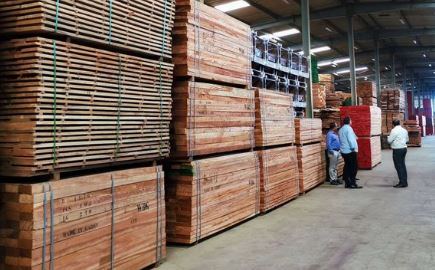| Home: Global Wood |
|
Industry News & Markets |
|
Australian hardwood timber
prices double one year on from native forestry ban |
 A recent ban on logging in native forests by the Western Australia Government has led to a sharp increase in demand for Australian hardwoods, with prices doubling over the past year. The sector is undergoing a transformation, which is part of the broader trend towards sustainable resource management that, for some, compounds the challenges for sectors reliant on high-quality, native hardwood. Commercial logging ended The policy, which took effect on January 1, has ended commercial logging of native hardwood species such as karri and jarrah, significantly tightening the domestic supply of these premium timbers used in flooring, furniture and construction. As supply constraints tighten, the industry is witnessing a growing reliance on imported hardwoods. According to the West Australian Forest Industries Federation, sawmills across the state have been impacted, with mills facing difficulties sourcing large-diameter logs. The federation says that only limited timber is available from forest thinning programs. This reduction in available domestic timber is altering the landscape for private tree farms and local sawmills. Some local plantations, which grow hardwood species for long-term sawlog production, are benefiting from the increased demand. These plantations focus on high-value, long-rotation hardwoods like blackbutt, spotted gum and Sydney blue gum ¨C woods valued for their durability and aesthetic appeal. Imports plug the gap But industry representatives warn that domestic supply alone cannot meet demand. Alan Basada, a timber supplier to sectors such as mining and maritime, observed that customers were increasingly turning to imports, particularly from Asia, to source hardwoods with similar properties to jarrah. ¡°There are people who are desperate, willing to pay good money for domestic logs, but the supply just isn¡¯t there,¡± Basada told the ABC. The State Government has implemented contracts for forest thinning around mine sites, providing some relief by increasing the availability of smaller logs, yet large-diameter timber remains in short supply. Industry insiders suggest that unless alternative sources or additional domestic planting initiatives are introduced, imported hardwoods will continue to play a growing role in Australia¡¯s timber market. Source: proactiveinvestors.com.au |
